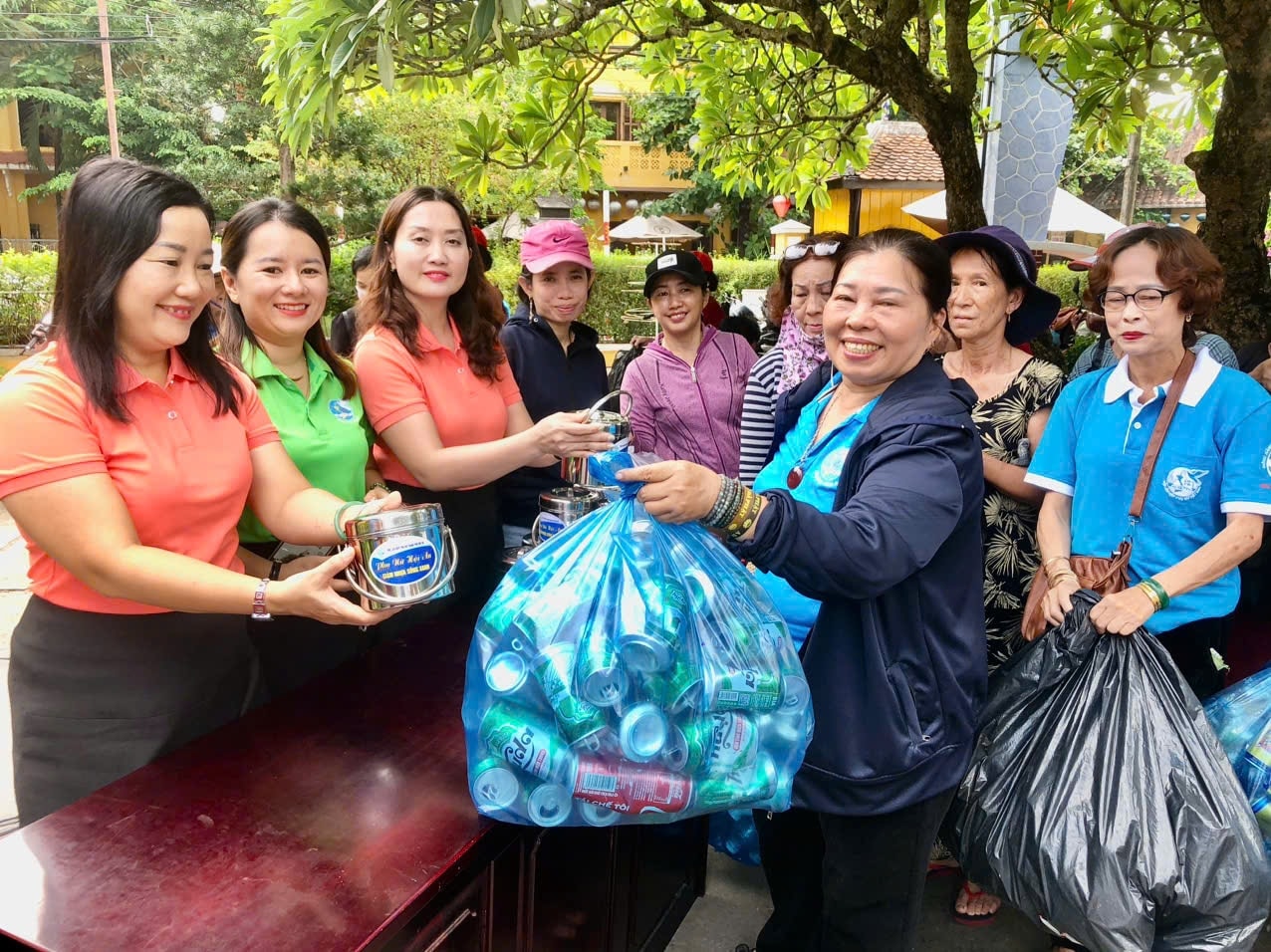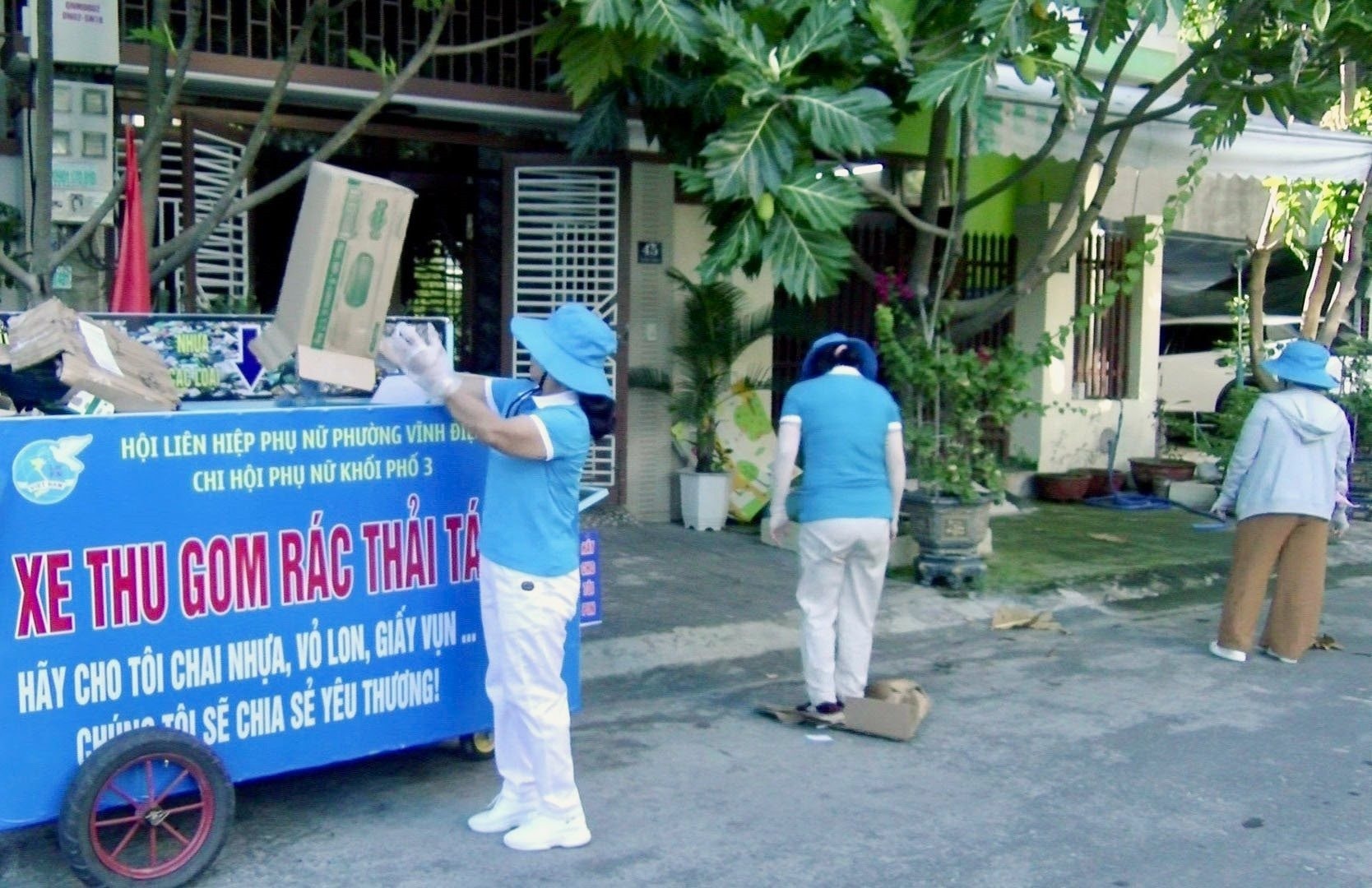
Women exchange waste for alternative products.
The "Plastic Free Cities" program, a global initiative by the World Wide Fund for Nature (WWF), has attracted the participation of many localities in Vietnam.
In Vietnam, plastic waste makes up 8% - 12% of household waste, but only 11% - 12% is recycled.
The rise of low-cost products from e-commerce is also a contributing factor to the increasing amount of plastic waste in the environment.
Hoi An is a locality that is considered to have many initiatives in encouraging community participation in the "plastic-free city" model across various sectors. Currently, accommodation facilities in Hoi An are replacing plastic bottles with glass bottles and reducing single-use plastic products for tourists.

Vinh Dien ward (Quang Nam) has launched several environmental protection initiatives.
Starting from December 31, 2024, Quang Nam plans to implement new regulations on household waste sorting, including fees for waste collection and higher taxes on businesses based on sorted waste, aiming to raise awareness about plastic pollution.
ReThink Plastic Vietnam's projects are diverse and include using natural materials like bamboo and coconut shells as plastic alternatives, innovating recycling with AI, and running educational campaigns on plastic pollution.
They also focus on community-based activities like clean-ups and local recycling to reduce plastic use in Quang Nam.
ReThink Plastic Vietnam is a community-led organisation/social enterprise aimed to create awareness and connect stakeholders from business, community and government around the global plastic pollution problem which is heavily affecting Vietnam, its coastline and ocean.
ReThink Plastic Vietnam raises awareness and encourages change through on- and offline activities and implements practical local solutions.
Translated by Cam Hy